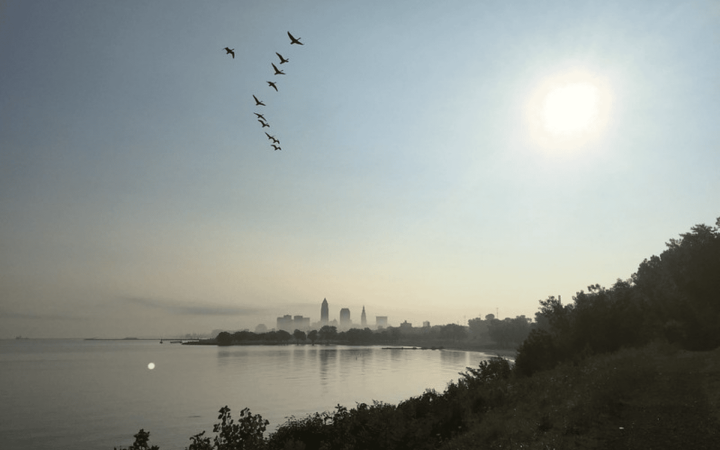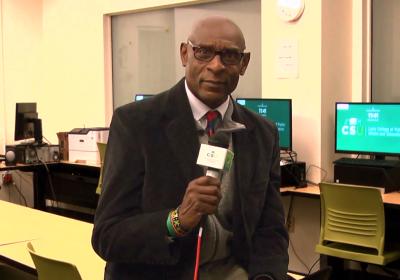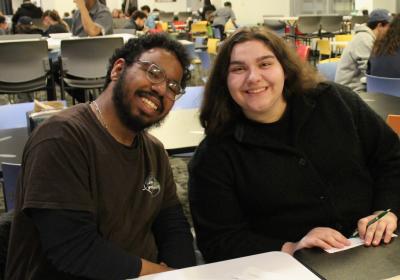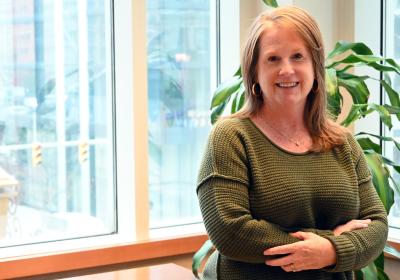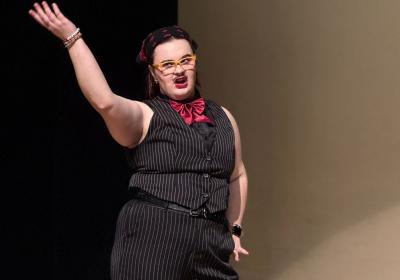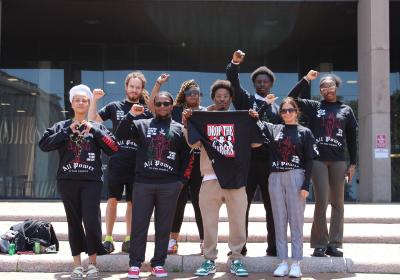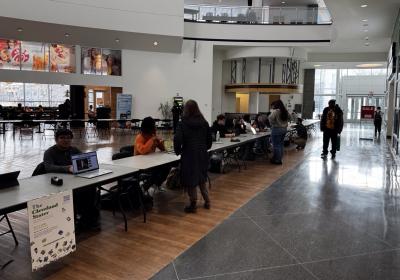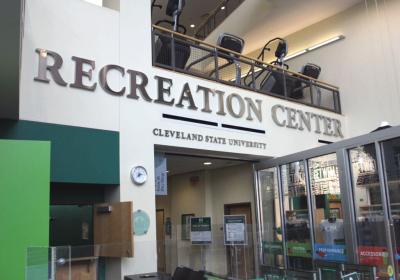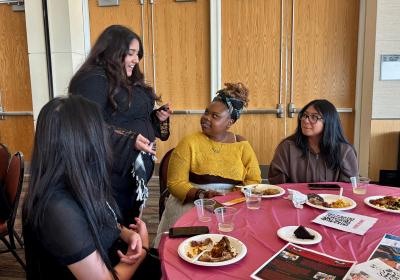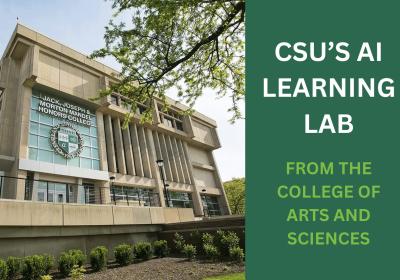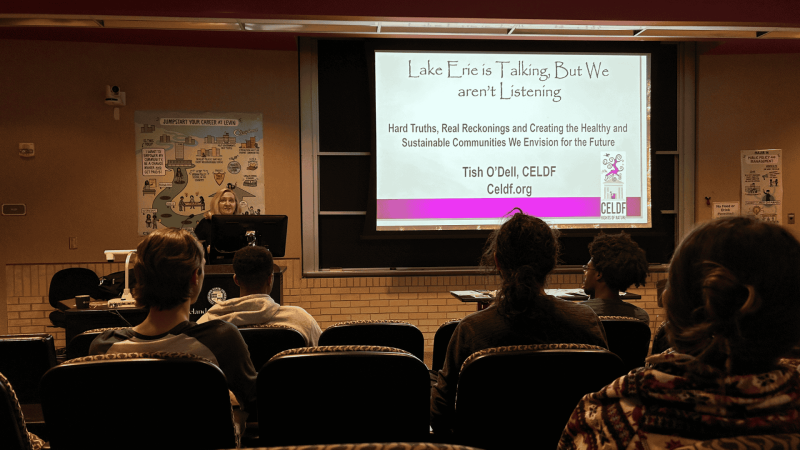
Environmental advocate champions legal rights for Lake Erie
“Lake Erie is talking but we aren’t listening.” That was the title of her talk and the message April 24 from Tish O’ Dell, consulting director of the Community Environmental Legal Defence Fund (CELDF) in a presentation at Cleveland State University.
O’Dell has been an influential force in community and nature rights for the past 12 years and her work for CELDF has earned her national acclaim. She has worked with various Ohio towns and communities on anti-fracking, anti-pipeline, the right to a livable climate, fair and free elections and water privatization issues.
Speaking to a rapt audience in Levin College's Dively Auditorium, O’Dell described the beauty of Lake Erie and her lifetime love for the body of water.
“I grew up here, and from the time I was little, I remember just being in awe of the lake,” O’Dell said. “And I was shocked the first time somebody said to me, ‘Lake Erie is disgusting.’ I was like, ‘what do you mean?’ I had never seen it that way. I've always thought she was amazing and fascinating.”
Her connection to the lake is palpable as she discusses the memories from her childhood, consistently referring to Lake Erie as “her.”
Most notably, O’Dell was involved with creation of the Lake Erie Bill of Rights. The first-of-its-kind law was passed by Toledo voters in 2019.The law established “irrevocable rights for the Lake Erie ecosystem to exist, flourish and naturally evolve.”
A federal judge struck the law down a year later, arguing that LEBOR was vaguely defined, and in its municipal overreach intruded on the authority of the state government to regulate matters of statewide importance.
Regardless of the law's fate, O’Dell is still determined to continue the fight to put in place more protections for the lake. In her talk she outlines the obstacles that must be overcome to make the lake healthy again.
Some of the problems affecting the health of the lake include harmful algae blooms, agricultural and urban runoff and invasive species. O’Dell argues that the systems in place to protect the lake are commonly voided through legal interventions that undermine those protections.
“The destruction of the planet is legal,” O’Dell said. “And what people don’t realize when you study the law in the system, sustainability is actually illegal.”
She referenced the Cuyahoga plastic bag ban as an example of this. The ban on single-use plastic bags was passed by the county council in 2019, but overturned by the state of Ohio shortly after.
“It was deemed illegal to pass that because it violated the rights of the corporations who produced the bags,” O’Dell said.
Overturning the plastic bag ban was a typical example of the ability of corporate power in the U.S. to undermine legal protections of the environment.
O’Dell pointed out that to change the law, the culture around not only the lake, but attitudes to nature itself, must first change.
“Our culture separates us from nature, we think humans are at the top of everything and nature is here for us to exploit and to make money from,” O’Dell said.
She discussed the idea of shifting our view of nature to live in harmony within it and the idea of “cultureships,” committing to truth and reckoning and creating a right relationship with the Great Lakes.
O’Dell said that she sees real change coming together when groups of people from different backgrounds are able to come together and discuss this relationship with nature.
“What we do to nature, we are doing to ourselves," O'Dell said, "and I think that’s where the conversation needs to start."
O’Dell met students after her presentation and responded to questions. You can learn more about O'Dell and the CELDF here.

